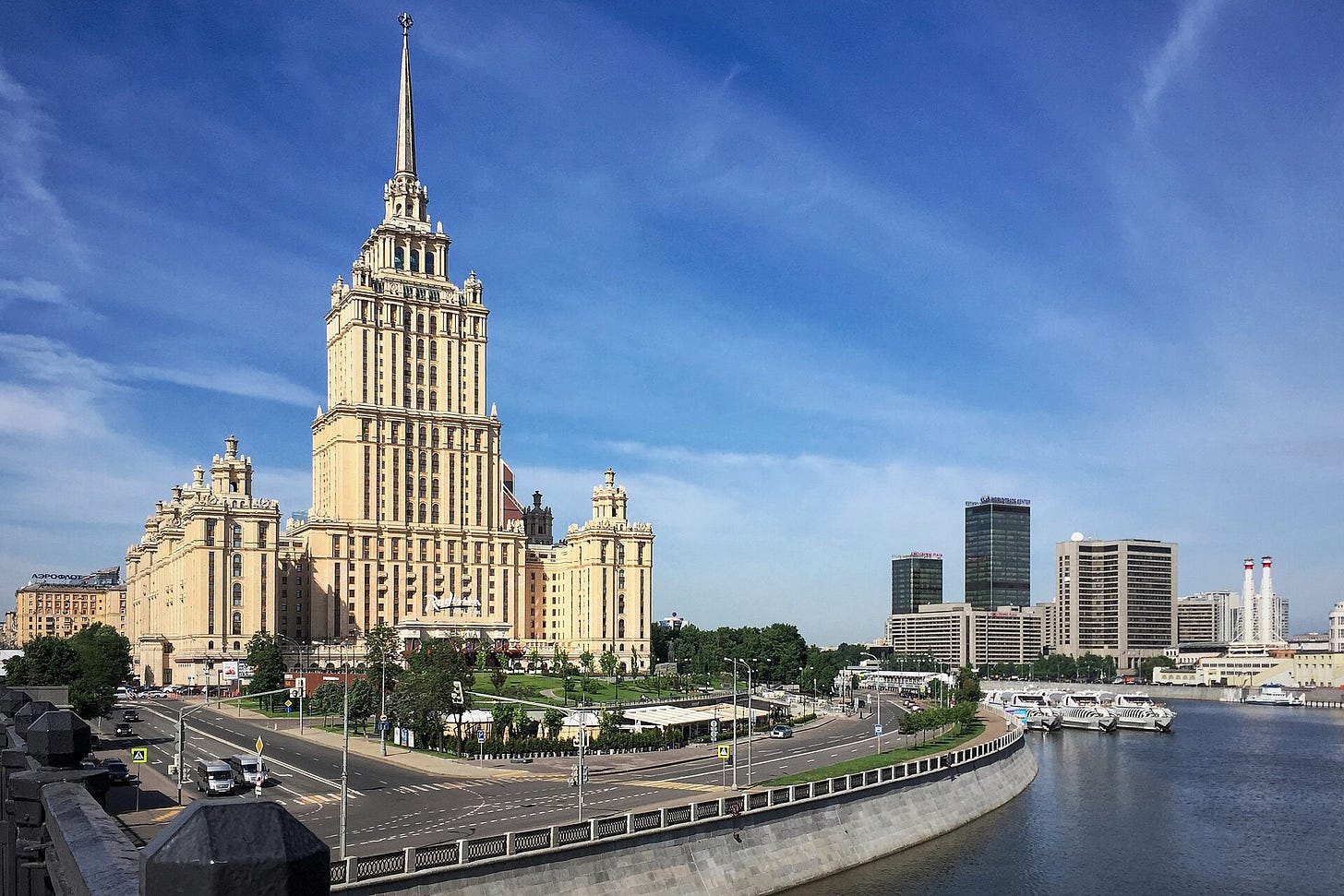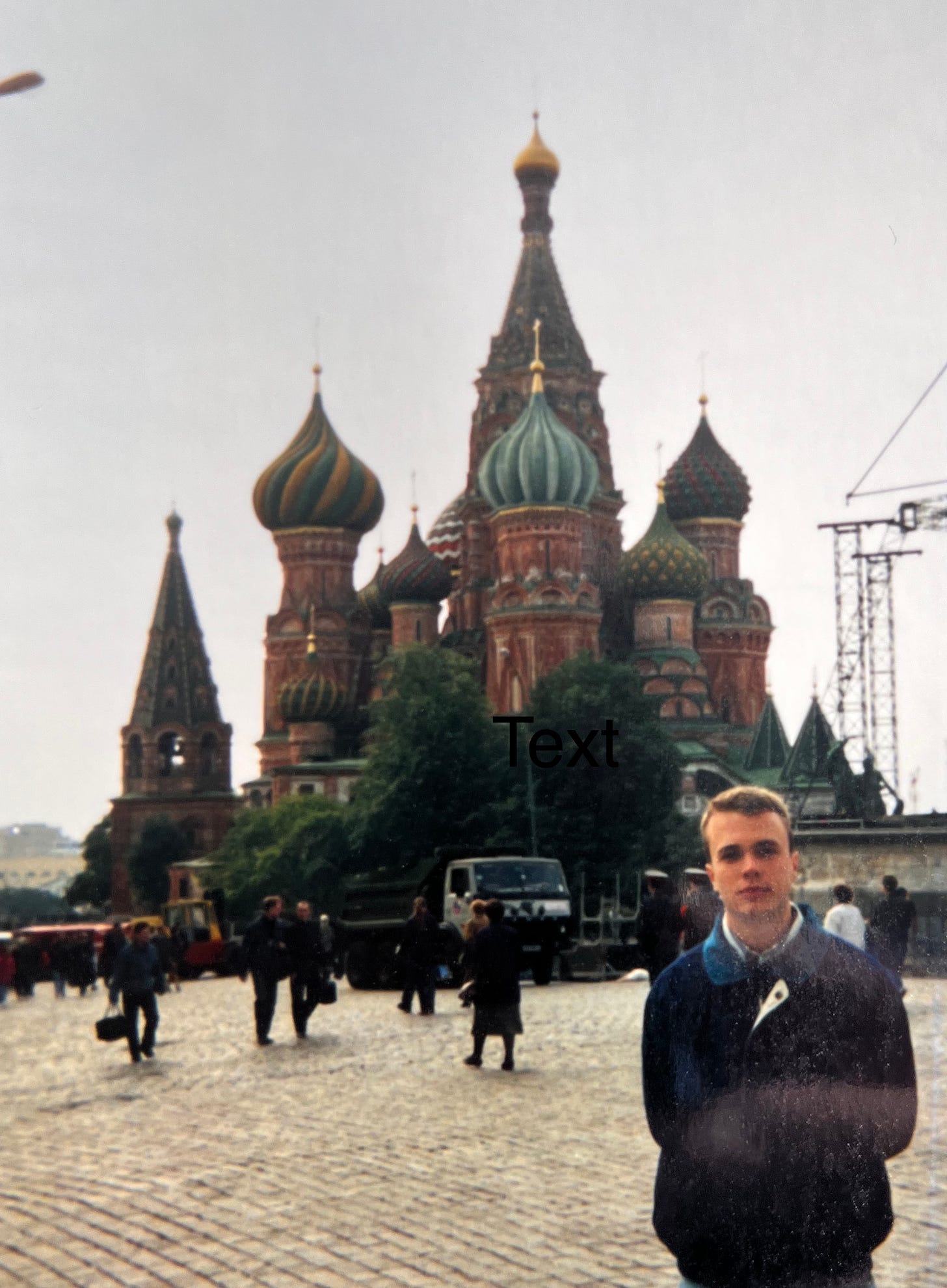Discovering the Scorpions
My Russian friend asked me what music I liked. It was a late autumn afternoon in Nizhny Novgorod in 1996. The sun streamed into the very Soviet apartment through gauzy curtains. A pot of soup simmered on the stove.
I stumbled to answer. As I searched for the answer that would make my 20-year-old self sound clever, he asked “do you like scorpions?”
I was confused. I thought he was talking about the scary little stinging animal.
He laughed. He laughed at me a lot. In the best sort of way that one human can laugh with another.
That day was the first time I’d heard Winds of Change, a song by the German band written after their groundbreaking performance in the USSR in 1990. My friend and I listened to it multiple times that afternoon while drinking tea.
I follow the Moskva down to Gorky Park listening to the wind of change… The world is closing in and did you ever think that we would be so close, like brothers. The future’s in the air I can feel it everywhere. Blowing with the wind of change.
That song has stayed with me. An anthem of my youth and my youthful idealism as a midwestern boy coming of age in late Yeltsonian Russia.
I remember another sunny autumn day, a year later, walking along the banks of the Moscow River. The cathedrals of the Kremlin glimmered in the sun. The Church of Christ the Savior was rising from the dead across the river.
Stalin’s seven sisters loomed on the horizon. The older lady I rented a room from that autumn worked as a bookkeeper in one of them, the Ukraine Hotel. She spoke often of the daily changes as a Soviet institution transitioned to five-star capitalism. I wish I remembered more of our conversations in her tiny kitchen on Kutuzovsky Prospekt where we’d settle and drink tea as night fell on Moscow.
The winds of change were blowing in all their complexity. I’m grateful for these and many other grounding conversations that bring the humanity of those windy times back to me so powerfully.
New Winds
Those memories seem a lifetime ago. Perhaps on a different planet. Or snippets from an old movie.
The winds of change never stopped blowing. Though I’ve perhaps rarely been as attuned to them as I was in those Russian years of youth.
It’s so easy to tune out the turbulent world around me, to fail to pay attention. The chaotic wind can be deafening: rekindled civil wars, coups in unexpected places, pleas for attention from parts of the world that are easier to ignore. Syria. Ukraine. Palestine. Lebanon. Sudan. South Korea. All places where I’ve drunk tea.
And then there are the hurricane-force winds blowing across my own country and my slow recognition that I’ve failed to see and know this place I call home.
Seeing
I know I’m not alone in finding it difficult to see and understand. And it’s not just an American challenge.
I’m a bit haunted by an article in The Economist that looks inside Russia in late 2024. Not surprisingly, it found complexity and difficulty coming to terms with reality:
Russians in such places are neither indoctrinated militarists nor passive automatons, as is often assumed. Instead they appear to be equally alienated from the state, from jingoistic patriots and from pro-Western exiles. In all three towns pro-war propaganda has all but disappeared. People have taken down the “Z” stickers they had put on their cars in the first weeks of the “special military operation”... People largely pretend the war is not happening. ‘Had it not been for the periodic news of someone’s death and for the funerals, people would not remember that there is a war going on … It is as though we don’t have war’.
It’s easy to ignore the obvious. To flee from the chaos into seemingly safe places. And not just in Russia.
It feels increasingly like chaos is the name of the game, that chaos is the strategy: keeping people aggrieved, at odds, and doubting that they are able to sort through complex happenings. Chaos brings about disconnection and disconnection allows distrust to thrive. And distrust leaves us alone. As Hannah Arendt recently reminded me, “loneliness is the bully that coerces us into giving up on democracy.”
Presencing
People who hold power poorly want us to be confused, overwhelmed, turned in upon ourselves, and fearful of others.
I find myself asking how I can be more present, how I must be more present. How can I remain awake to what is happening around me? How can I acknowledge and be present to my emotions, even those that I may not be able to face just yet? How can I lower my defenses, rather than raise new ones? I’ve come back over and over to some recent words from Renee Lertzman: “Whether we feel passionate or numb, resolute or desperate; the obstacles to action are not the difficult emotions themselves, but our defenses against feeling them.”
These are windy times. I find myself recommitting to grounding times with others that resist the chaos and humanize the challenges before us all. And drinking more tea with others.
For Reflection
Do you resonate with the sense of chaos that I describe? Does chaos cause you to draw inward/away? How can you resist this pull?
What emotions do you find the hardest to name?
What I’m reading/engaging
For those in the sphere of Christian theology, I commend to you my Ukrainian friend Taras Dyatlik’s recent post on “peacetime theologies”. He challenges us to see beyond what is convenient and learn from those who seek to understand god and life from the margins of violence, questioning whether violent contexts are, indeed, the margin?
I continue to sit with a recent edition of On Being with Lyndsey Stonebridge and Lucas Johnson on the relevance of Hannah Arendt to our world today.
Of all the things I’ve read about the recent US election, this interview with Marie Glusenkamp Perez, a representative from Washington State, has stuck with me the most.



